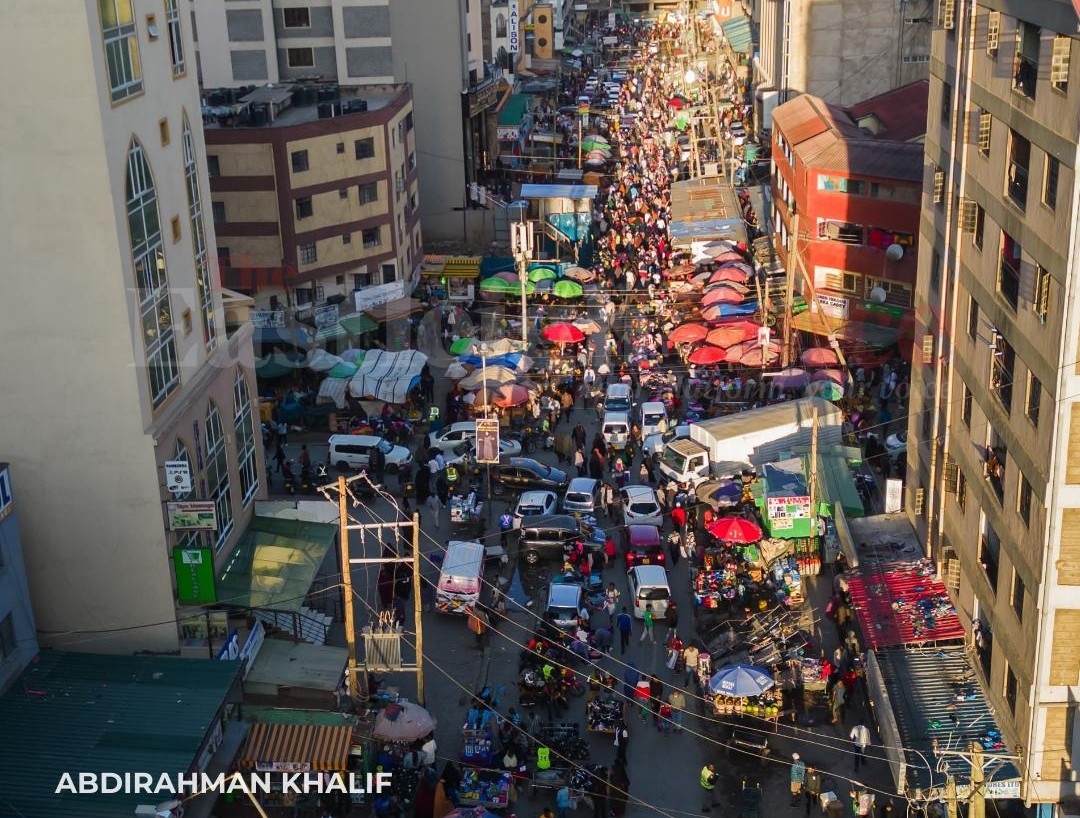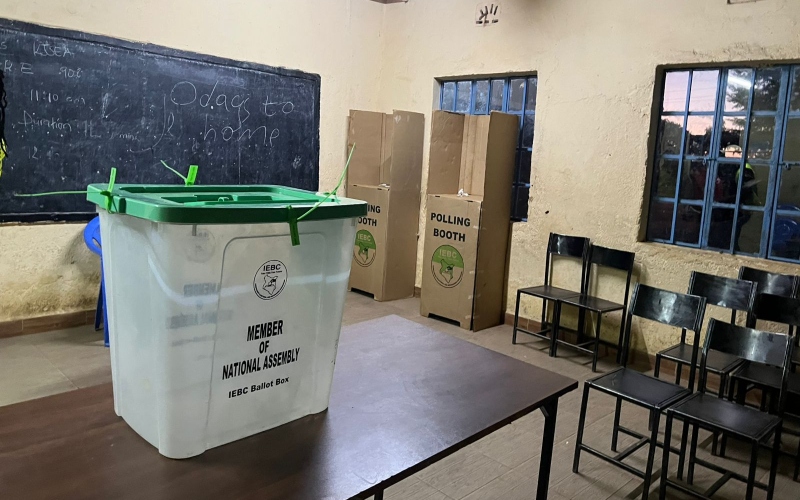Eastleigh local traders raise alarm over influx of Chinese retailers

The traders argue that the methods employed by the Chinese to attract customers are unethical and illegal.
Business owners in Eastleigh are raising alarm over what they describe as a growing influx of Chinese nationals who are allegedly taking over retail operations in the area, leading to increasing concern among local traders.
According to the business owners, the entry of these foreign nationals into the retail space is not only creating unfair competition but also threatening the livelihoods of thousands of Kenyan entrepreneurs who have operated in the area for years.
More To Read
- Nairobi County, Eastleigh Business Association agree on food safety and restaurant licensing
- Safaricom partners with Eastleigh business community to enhance network and internet connectivity
- Eastleigh traders count losses as Yusuf Haji Road remains in darkness
- Eastleigh’s Sgt. Kahande Street turns hazardous as stagnant water, traffic jams worry locals
- Eastleigh traders accuse City Hall of inaction as unlicensed hawkers flood streets despite ban
- Eastleigh mall owners protest return of hawkers, call for county action
Local traders claim that Chinese nationals have opened several shops in different malls within Eastleigh, specialising in retail items such as underwear and women’s handbags.
These were previously key products for many Kenyan businesspeople in the area.
The traders argue that the methods employed by the Chinese to attract customers are unethical and illegal.
Several traders allege that the Chinese nationals spy on other local businesses to identify customers who buy in bulk. Once such a customer is identified, the Chinese assign someone to follow the buyer and offer gifts, promising them better prices and discounts if they switch to their shops.
This approach, according to the traders, has severely affected customer loyalty and disrupted the normal business environment in Eastleigh.
Abdirahman Mohamed, a local businessman, expressed concern about the legality of the operations by the Chinese. He pointed out that non-citizens are not allowed to engage in retail business in Kenya, and yet these Chinese nationals continue to do so.
 Abdirahman Mohamed, a local businessman, expressed concern about the legality of the operations by the Chinese. (Photo: Justine Ondieki)He further claimed that the goods being sold by the Chinese are offered at much cheaper prices because of their direct connections to manufacturers in China.
Abdirahman Mohamed, a local businessman, expressed concern about the legality of the operations by the Chinese. (Photo: Justine Ondieki)He further claimed that the goods being sold by the Chinese are offered at much cheaper prices because of their direct connections to manufacturers in China.
According to him, some of the Chinese individuals selling goods in Kenya are the same people who had sold those products to Kenyan traders when they travelled to China to import merchandise.
"It is wrong for the same Chinese who sold goods to me in China to come here in Kenya and sell in retail," said Abdirahman.
He also noted that the Chinese do not contribute to the local economy since they do not purchase goods or food from Kenyan sellers. According to him, many even bring their own food and other supplies from China and do not spend their earnings locally.
Other traders echoed similar sentiments. Sharif Ali, a businessman in Eastleigh, said the situation has become unbearable and appealed to both the national and county governments to intervene.
"We are calling on the government, led by the President, the area MP, and the Nairobi Governor to help us deal with these people," he said.
Liban Ahmed, who sells underwear and handbags, described the situation as one that is pushing local traders out of business. He said the methods being used by the Chinese nationals are making it impossible for Kenyan-owned businesses to survive.
"I sell underwear, clothes and bags. All we want is the government to come to our rescue," he noted.
 The business people first reported the matter to Nairobi City County enforcement officers, commonly known as 'kanjos,' through the office of Kamukunji sub-county commander. (Photo: Justine Ondieki)
The business people first reported the matter to Nairobi City County enforcement officers, commonly known as 'kanjos,' through the office of Kamukunji sub-county commander. (Photo: Justine Ondieki)
According to the traders, the issue is not new. They claimed that the same group of Chinese nationals had previously attempted to establish similar businesses in other major trading centres such as Kamukunji and Gikomba.
However, after protests by local traders in those areas, they were forced to leave. Now, the traders in Eastleigh say the Chinese have returned with the same tactics.
The Eastleigh Voice has established that some of the Chinese nationals are allegedly using documents belonging to other Kenyans to obtain permits and operate businesses while avoiding public attention.
This, according to the local traders, is part of a wider strategy to remain unnoticed while continuing their operations.
The traders believe that without proper government intervention, the presence of Chinese nationals in the retail sector will continue to grow, further pushing out Kenyan businesspeople.
They are urging the relevant authorities, including immigration and tax agencies, to look into the matter and take appropriate action.
For now, the tension continues to grow as local traders wait for a response from government agencies.
The community is hoping that the government will act swiftly to investigate the legality of the businesses being run and ensure that local entrepreneurs are protected from practices they view as unjust and harmful.
Top Stories Today













































